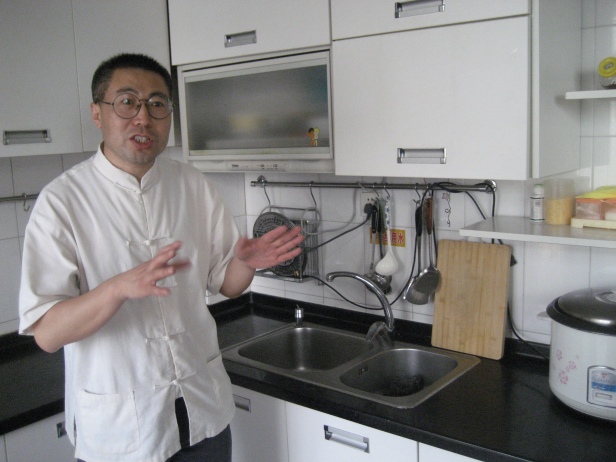
Empowering Migrant Women in Mainland China
A teacher by training and a visionary at heart, Huang He has devoted his entire life to empowering low-income migrant workers and their children through providing educational opportunities. Every year, at least 13 million rural people, roughly the equivalent of the population of Beijing, flood into bigger cities to escape poverty and look for jobs. Long considered “second-class citizens,” migrants earn as little as 50 cents an hour in China’s cities and do not have equal access to social services, education, health and job opportunities.
Since founding a school in 2001 with his own money for children of migrant workers living in Beijing’s shantytowns, the 43-year-old Huang and his students were forced to move five times in three years before the school received legal status from the Ministry of Education in 2004. At the lowest point, Huang and the teachers were locked out of their campus when the school failed to pay some 70,000 yuan (US$8,980) in rent. After extensive media coverage, the money was raised in a matter of weeks and the school doors opened again.
I discovered Huang in early 2006. One of our clients agreed to fund Huang’s school programs for three consecutive years, as part of our regional strategy to provide more free-of-charge job training opportunities for migrants. In just one year, with funding a little over US$88,000, the lives of nearly 2000 migrants, mostly women, have been changed as a result of this grant.
In 2006, Huang’s passion to see a self-sustaining social enterprise led him to officially register Xin Zhi Guang as a business. Through this platform, groups of 20 women live together and learn together in four different locations in Beijing and in several cities across China. They have found higher paying jobs as nannies and housekeepers.
The lives of these women have changed dramatically as their earnings have increased more than triple from as little as US$60 a month to US$300 monthly. They can now send back money to their families to cover the cost of household expenses, tuition fees for their siblings and health care costs for parents.
I will never forget meeting half a dozen migrant women in Beijing this past August as tears streamed down their faces, they grabbed my hands and thanked the donor of the program. These women echoed the same story: they took a big risk in applying to Xin Zhi Guang’s job training program. It seemed too good to be true to be free of charge. But they were so desperate and could not afford to stay in their rural hometowns and so they took a plunge into the unknown, even if their lives were at risk. And it paid off beyond their wildest dreams.
Our donor client’s grant will also allow Xin Zhi Guang to grow its business model and further expand its reach in migrant communities. By 2010, Huang’s project is set to help lift thousands of women and their families out of the cycle of poverty.
Indeed, Huang hasn’t been on an easy road over the last several years. It is a testament to his vision, perseverance and moral courage that his dream of bringing quality vocational training and educational resources to the poor has become a reality. This unsung hero will undoubtedly inspire others to follow in his footsteps.
Sylvia Yu
Consultant for a Philanthropist Client
